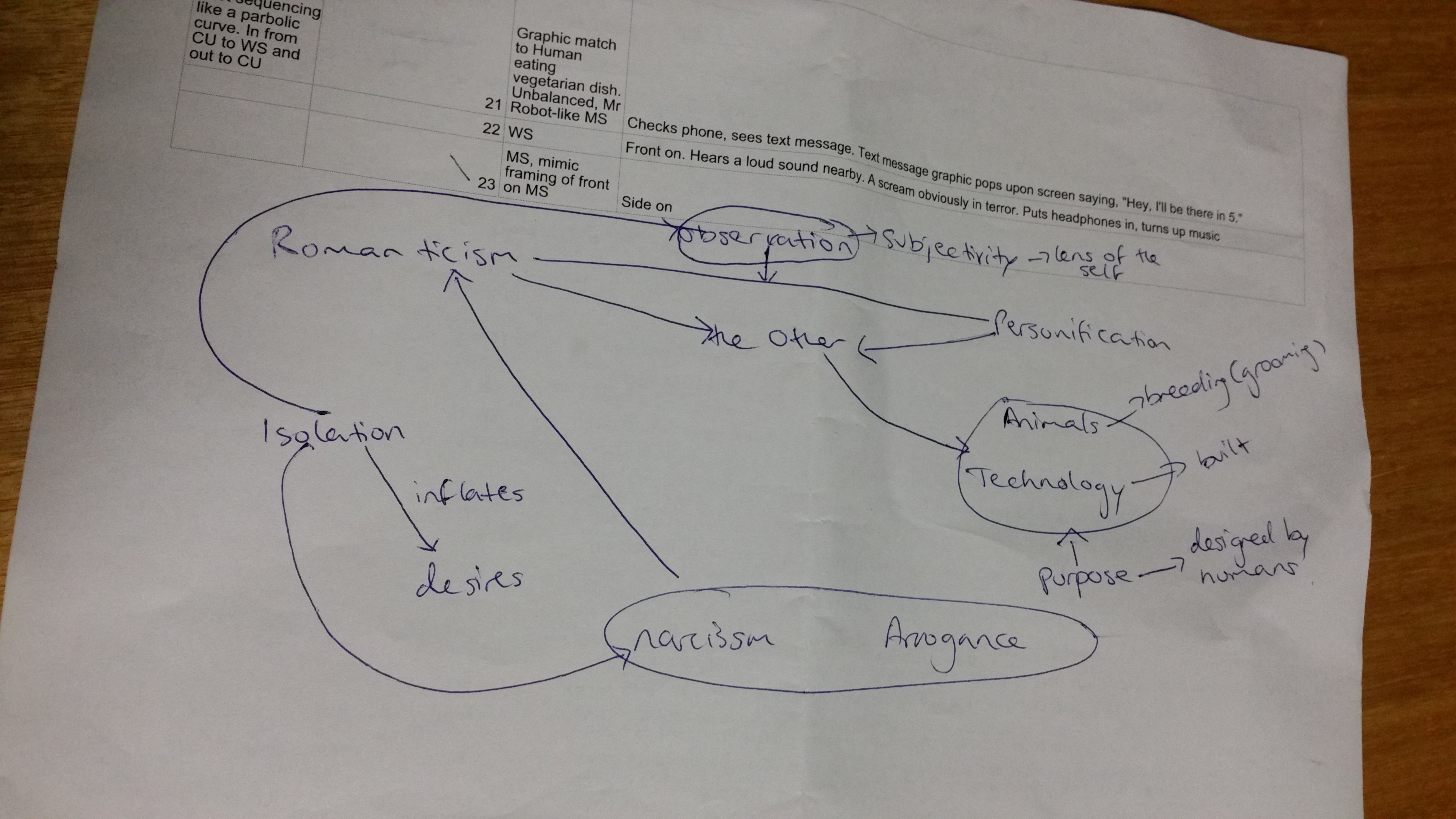After some soul searching and in-depth discussions with close, and very philosophical friends, I have finally uncovered what i really want to convey through my film.
Through their recommendations I looked into the definitions of the words which I previously used interchangeably:
Anthropomorphising – 1. to ascribe human form or attributes to (an animal, plant, material object, etc.)
Fetishising – a strong and unusual need or desire for something
: a need or desire for an object, body part, or activity for sexual excitement
: an object that is believed to have magical powers
A fetish is an extremely strong devotion to something. There are sexual fetishes and nonsexual fetishes: both are obsessive interests.
(Psychology) (tr) to be excessively or irrationally devoted to (an object, activity, etc)
ˌfetishiˈzation, ˌfetishiˈsation n
Personification –
- the attribution of a personal nature or human characteristics to something non-human, or the representation of an abstract quality in human form.
“the book provides a sustained account of how literary personification works”
- a figure intended to represent an abstract quality. “the knight is accompanied by two feminine personifications of vice”
Romanticize. : to think about or describe something as being better or more attractive or interesting than it really is : to show, describe, or think about something in a romantic way.
And I found the words that expressed what I was truly trying to say.
I also explored dense philosophical concepts, such as the Other:
THE OTHER
In phenomenology, the terms the Other and the Constitutive Other each identify a cumulative, constituting factor in the self-image of a person—the acknowledgement of being real. As such, the Other is dissimilar to and the opposite of the Self, of Us, and of the Same.[1] Otherness, the characteristics of the Other, is the state of being different from and alien to the social identity of a person and to the identity of the Self.[2] Another way of describing “The Other” is to portray oneself at the centre of focus and “The Other” on the outside.[3]
A cultural example of othering is when individuals that identify closely with their own ethnic or religious beliefs begin to gain the mentality that those who are different from them are problematic.[5] This can lead to extreme separation, alienation, and exclusion of the person or of people that is seen as different or unusual to the typical lens of one’s societal views.[6] Othering can be described as discrimination of people or a population that is different from the collective social norm; since they are different they are also seen as deviant or in need of being cultured by the group that is othering them.[6] (wikipedia)
As you can see, I only used Wikipedia for this exploration, but it was more than enough.
My friend Oliver even consolidated my ideas into two paths for me, which gave me two clear conceptual choices:
INSTINCT AS DESIRE – we romanticise animals in their unashamed pursuit to fulfill their desires – while social life is categorised by supression of desire.
INSTINCT AS STRESS – animals use stress to manage basic survival – whereas people use it for work and social interaction.
While neither of these expressed the entirety of what I was hoping to get across, it did bring to me to this buzzword sentence:
ROMANTICIZING ANIMALS and their ANIMALISTIC TENDENCIES
And
TRYING TO UNDERSTAND THE OTHER
Which ultimately brought me to my thesis statement:
Through romanticism, personification occurs. Realising something is better in turn triggers humanity to want that something to be like itself. Romanticism ultimately occurs through observation of the Other. The Other “is dissimilar to and the opposite of the Self, of Us, and yet of the Same” (wikipedia), that is to say that although the Other is not us, it gives the self meaning and reality, while ultimately being perceived through the lens of the self. The Other is only perceived through the lens of the self therefore it can only ever be a version of the self.
Basically, a critique of human subjectivity.
I also want to bring across the idea of ‘avoidance of the terminal journey’ through my film. This will hopefully come across through the mood and alienation.
